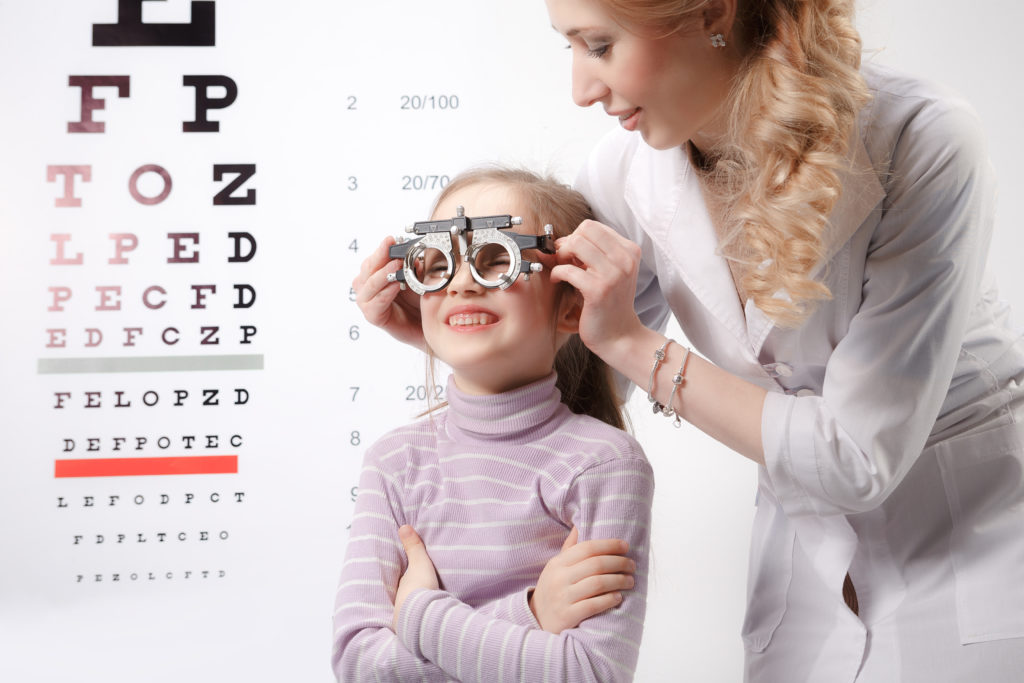A baby can differentiate between dark and light even when he is in the womb. When babies take birth, they start recognizing shapes by following the lines where dark and light meet. The vision starts getting developed in humans since their birth. When a baby is a few weeks old, he is able to his first primary color i.e. red. However, it takes about five months to develop eye-coordination and depth perception in infants.
You’ve most likely heard the term 20/20 vision which is ordinarily considered as “normal” visual sharpness. When a child is about half six months old, his visual sharpness is around 20/100. Your infant won’t arrive at adult degrees of visual sharpness until they are of age 4 or 5. You’ll perceive the way vision turns into a critical component in your child’s capacity to make full-body movements like walking and standing.
There are various factors that help in deciding the development of vision in humans. If you take care of certain things, your eyes will be healthy. Ensure to take your children for regular eye tests. Consider going through iscreenvision.com to view tests for pediatric vision screening. Apart from this, follow the below tips to improve and maintain your vision.
Tips to improve and maintain your eye vision
1. Ensure to include health-nutrients in your diet

Perhaps the best thing to do is to address your way of life to have a decent quality eating regimen. Nutrients, minerals and a supplement rich eating routine can frequently cross out numerous issues and assist you in living a healthy life.
A few specific nutrients, for example, Vitamins A, C, E and minerals like zinc, Omega-3 unsaturated fats are stacked with such countless antioxidants which effectively forestall macular degeneration, i.e., safeguard the part of the eye which assists in maintaining your vision.
Be it a school-going kid or a senior resident, make a point to add copious amounts of colorful nutrition rich natural products, vegetables, fish and spices to their diet to protect the vision of your eyes.
2. Don’t forget to wear your sunglasses

The right sets of shades will assist with shielding your eyes from the ultraviolet rays of the sun. An excessive amount of UV exposure boosts your possibilities of cataracts and macular degeneration. Pick a pair of sunglasses that blocks about 99-100% of UVA and UVB beams.
Wraparound lenses help in shielding your eyes from the side whereas the polarized ones help in decreasing the glare while you drive. If you have a habit of wearing contact lenses, ensure to pick the ones that offer protection from UV rays.
3. Avoid smoking
Do you realize that smoking is not only harmful for your lungs and heart but pretty much every other body part? These body parts incorporate your eyes, as well. Smoking decisively raises your risks of developing age-related macular degeneration and cataract.
Luckily, your eyes, lungs, heart, and other body parts can begin to recover from long periods of tobacco-induced damage when you quit smoking. Furthermore, the more you can stay away from cigarettes, the more your veins will benefit and inflammation will dial down all through your eyes and the rest of you.
4. Do not neglect exercise for your eyes

Since eyes also have muscles, they also need some activity or exercise to stay in good form or shape. Eye exercises are incredible when done in the first part of the day, when your eyes feel tired prior to going to bed. If you keep practicing this regime for at least a month, you will start seeing a difference in your vision.
Start by warming up your eyes for five seconds with the help of warm palms. Do it multiple times. Rolling your eyes isn’t simply a declaration of disturbance or annoyance, but it can help your eye muscles as well.
Look upward and make circles with your eyes multiple times in both directions. To hone your concentration, hold a pen at a manageable distance and focus on it. Draw the pen near you gradually until it is six inches from your nose. Repeat the exercise for more effective results.
5. Get good sleep at night

When you don’t get sufficient night’s sleep, your eyes will feel sore or dry over the course of the day. Intend to get good sleep every night for about 6-8 hours to allow your eyes to calm or relax and give them an opportunity to recover.
Do not use the screen before hitting the bed as it will trouble you in getting sound sleep. Assuming you experience difficulty nodding off, take a stab at wearing an eye mask or covering your windows with dark colored curtains to make your room as dark as could really be expected.
6. Make your surroundings eye-friendly
There are many things in our environment that can be harmful for our eyes. For example, sitting in front of a desktop or laptop for a very long time, getting into a swimming pool containing chlorine without wearing protective eyewear, reading in dim light, etc. Pay attention to such situations if you want to maintain or improve your vision.
7. Go for regular eye checkups

Eye tests are vital to ensure your eyesight hasn’t changed. Book an appointment with an ophthalmologist somewhere around once each year to actually check your vision. Answer every one of the inquiries genuinely during the test so you get accurate results during the eyesight test.
Get some information about any methods or activities you can do to assist with further improving your vision too since experts might know multiple methods.
To Sum Up
The vision in humans starts getting developed from the time of their birth. However infants reach the full level of visual sharpness when they are 4-5 years old. You have to take care of certain things if you want to maintain the health of your eyes. Check out the above tips and follow them to improve your vision.



